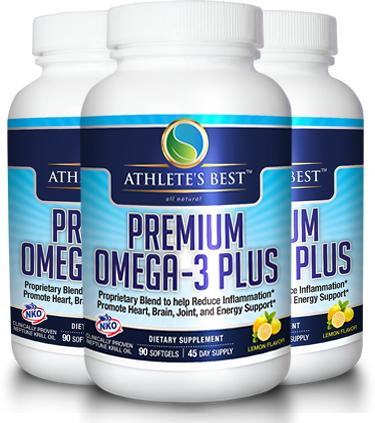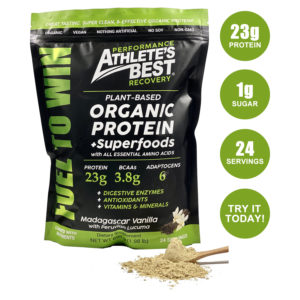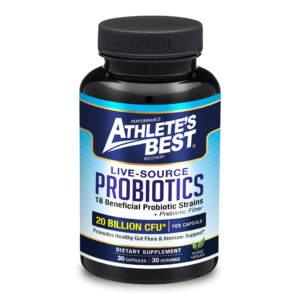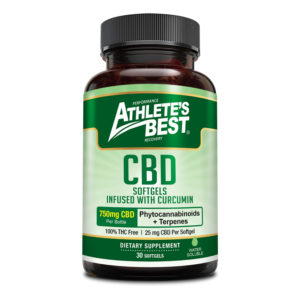The benefits of omega-3s are endless, but more and more research is coming out in regards to how they may extend the life of telomeres. Why is this important you may ask? Telomeres are the caps at the end of chromosomes and the length is a measurement used to assess the biological age of your cells. Early death and age-related disease have been linked to shorter telomeres. Although telomeres naturally shorten over time, shortening is not inevitable and telomeres can also lengthen. Telomere length is associated with lifestyle behaviors and naturally shorten as a consequence of poor diet, stress, environmental and household pollutants. For instance, women who are obese or smoke cigarettes suffer greater loss of telomere length, with a corresponding reduction in life span.1,2
There was a recent study that was published that measured telomere length in humans given EPA/DHA fish oil supplements. The results showed that reduced plasma levels of omega-6 fats coupled with increased omega-3s resulted in an increase in telomere lengths.3 The scientists attributed this telomere length increase to reductions in inflammatory cytokines and oxidative stress brought on by higher levels of omega-3s in relationship to pro-inflammatory omega-6s. In this human study where telomeres were lengthened, scientists used between 1,250 and 2,500 mg of EPA/DHA fish oil daily to boost omega-3 plasma levels in relation to omega-6s.3
We created the Athlete’s Best Premium Omega-3 Plus supplement after our research showed that most omega-3 ‘fish oils’ on the market were not doing a proper job at raising the users omega-3 plasma levels. The omega-3 fatty acids are attached to phospholipids within our formula, which allow the nutrients to pass directly into the cells, making it much more bioavailable than typical fish oils. By taking just two softgels a day of the highest quality omega-3 supplement, and reducing your intake of omega-6 fatty acids, your telomeres may extend as well.
Scientists know that telomeres shorten faster due to a number factors including oxidative stress, nutritional deficiencies (primarily in vitamin D and omega 3 fats), physical and mental stress and carbohydrate intolerance. This research is extremely exciting as it supports the notion that telomere shortening can be prevented and even reversed by simple lifestyle changes such as supplementing with omega 3 fats.4 Athlete’s Best has the trifecta to combat the shortening of telomeres. As you know, we have the highest quality omega-3s in our Premium Omega-3 Plus product. We also include over 1000 IU of Vitamin D per serving and the world’s most potent antioxidant, astaxanthin, which has tremendous ORAC (oxygen radical absorbance capacity) value.
Additional information –
Some research suggests that too many omega-6 fats can lead to an increased risk of cardiovascular disease, cancer, inflammatory, and autoimmune diseases. This research is not conclusive, but for most people, the amount of omega-6 fats should be reduced, and the amount of omega-3s should be increased.
A few omega-6 fats to avoid include vegetable oils such as corn, soybean, safflower, sunflower, and grape seed oil. Shortening, margarine, and canola oil are also very high in omega-6s. Coconut oil and olive oil should be your main sources of cooking oils, and don’t be afraid of ‘grass fed’ butter.
Find out how Vitality Force (Nitric Oxide) may also extend telomeres in Part II: Do Lobsters Hold a Secret to Cell Renewal?
- Valdes AM, Andrew T, Gardner JP, et al. Obesity, cigarette smoking, and telomere length in women. Lancet. 2005 Aug 20- 26;366(9486):662-4.
- McGrath M, Wong JY, Michaud D, Hunter DJ, De Vivo I. Telomere length, cigarette smoking, and bladder cancer risk in men and women. Cancer Epidemiol Biomarkers Prev. 2007 Apr;16(4):815-9.
- Kiecolt-Glaser JK, Epel ES, Belury MA, et al. Omega-3 fatty acids, oxidative stress, and leukocyte telomere length: A randomized< controlled trial. Brain Behav Immun. 2012 Sep 23.
- Kiecolt-Glaser JK, Belury MA. .Omega-3 supplementation lowers inflammation in healthy middle-aged and older adults. 2012 Aug.







